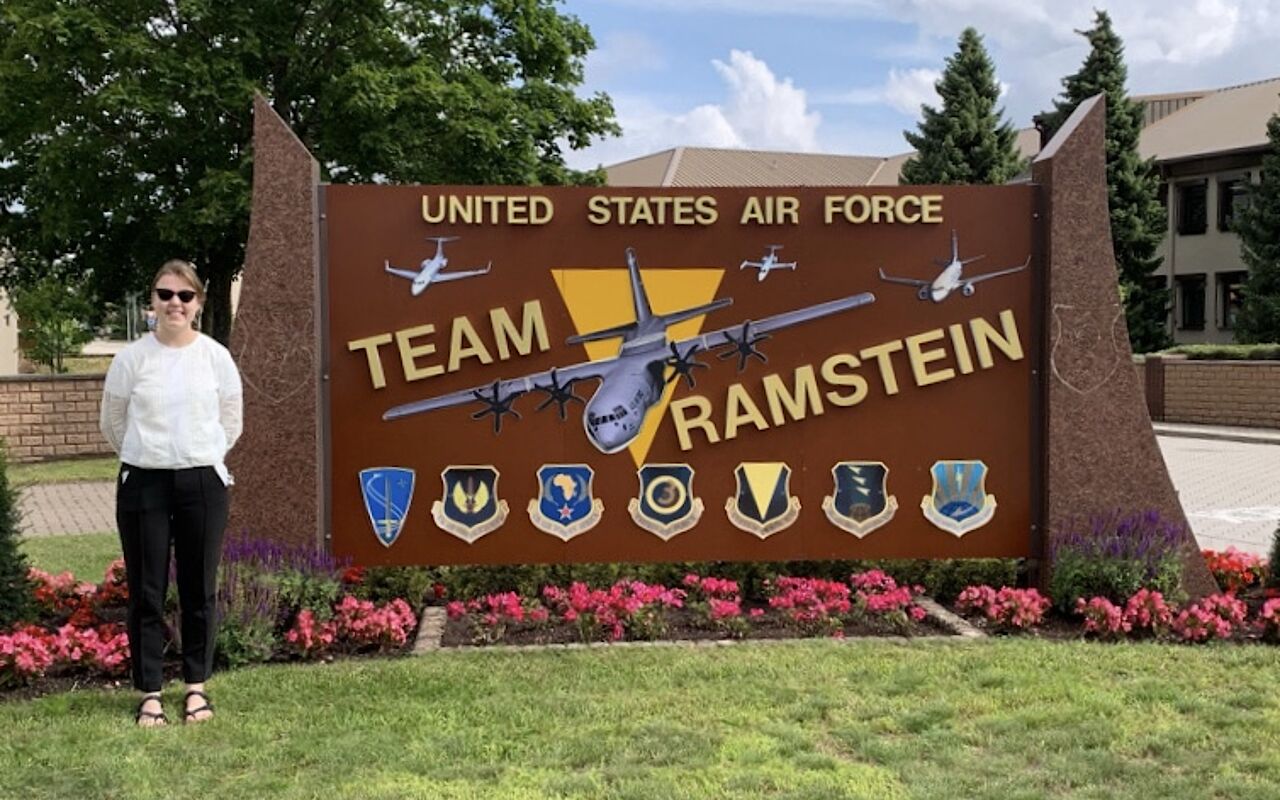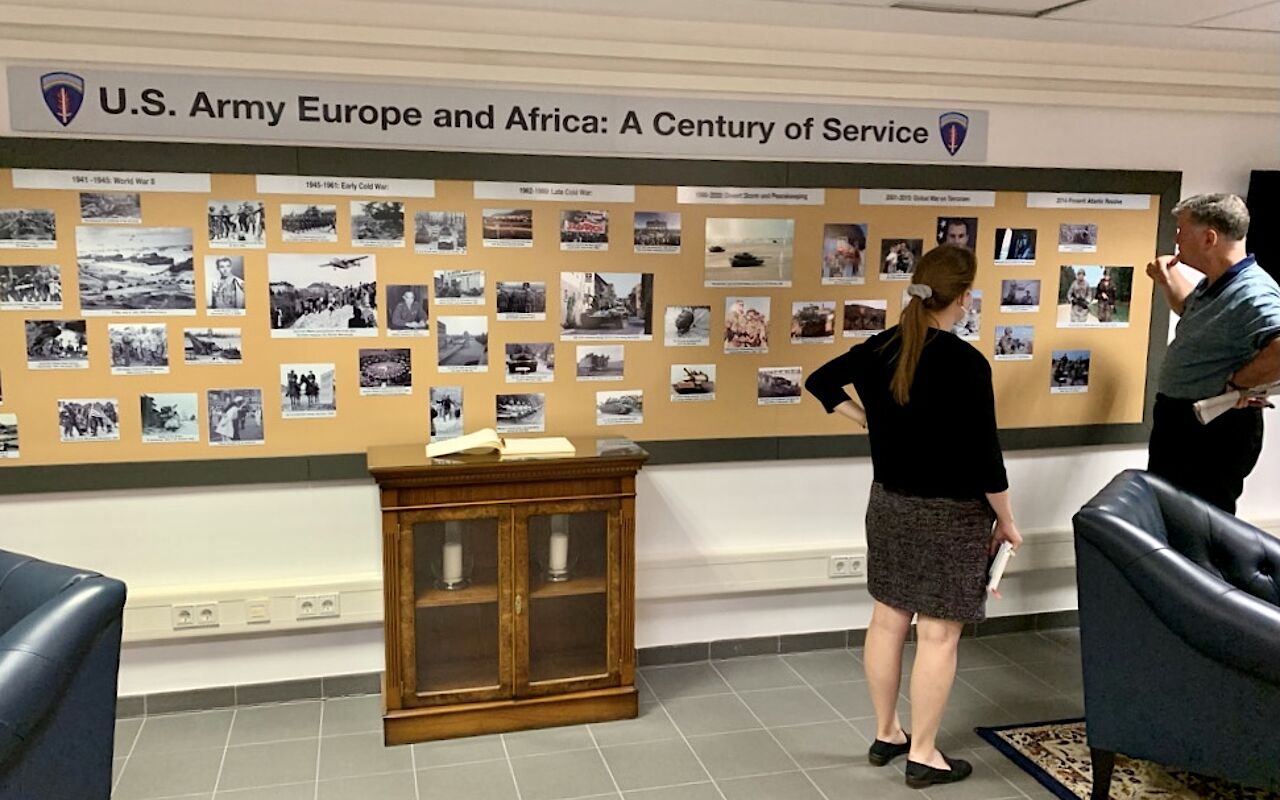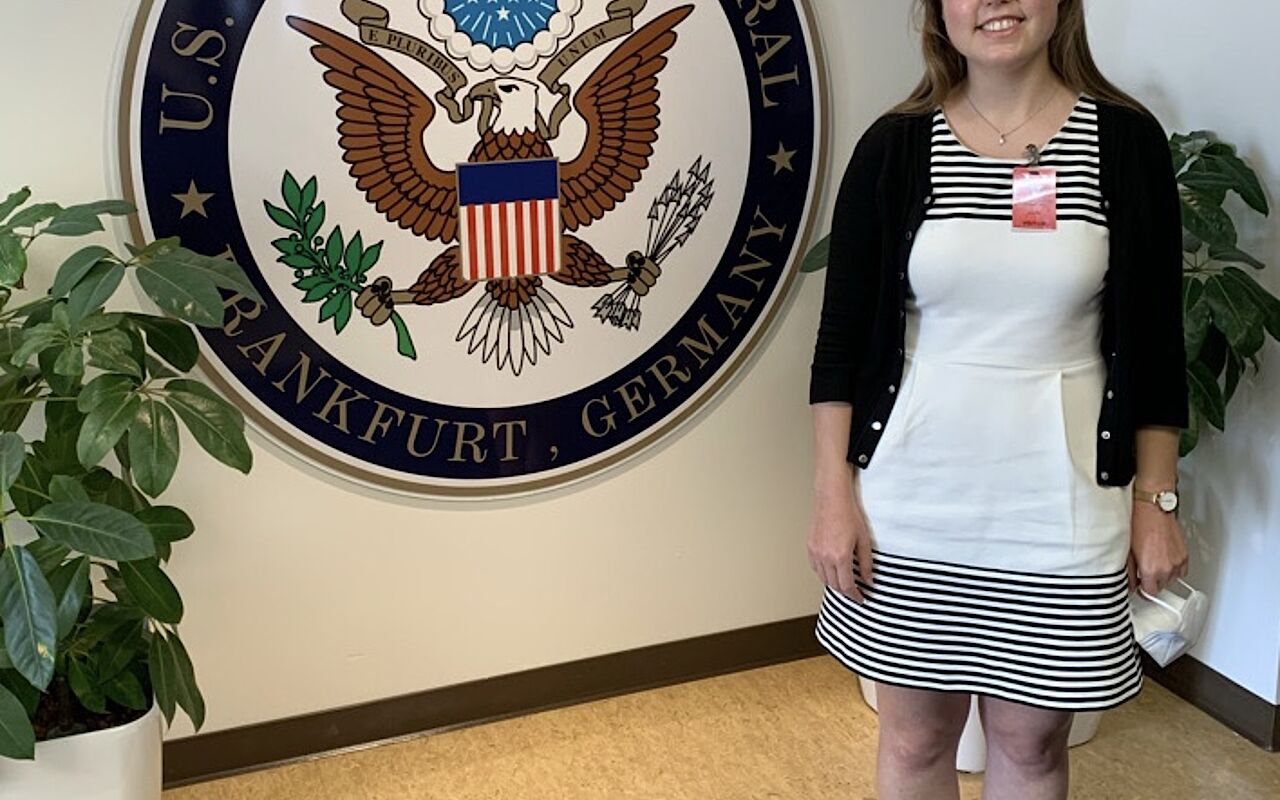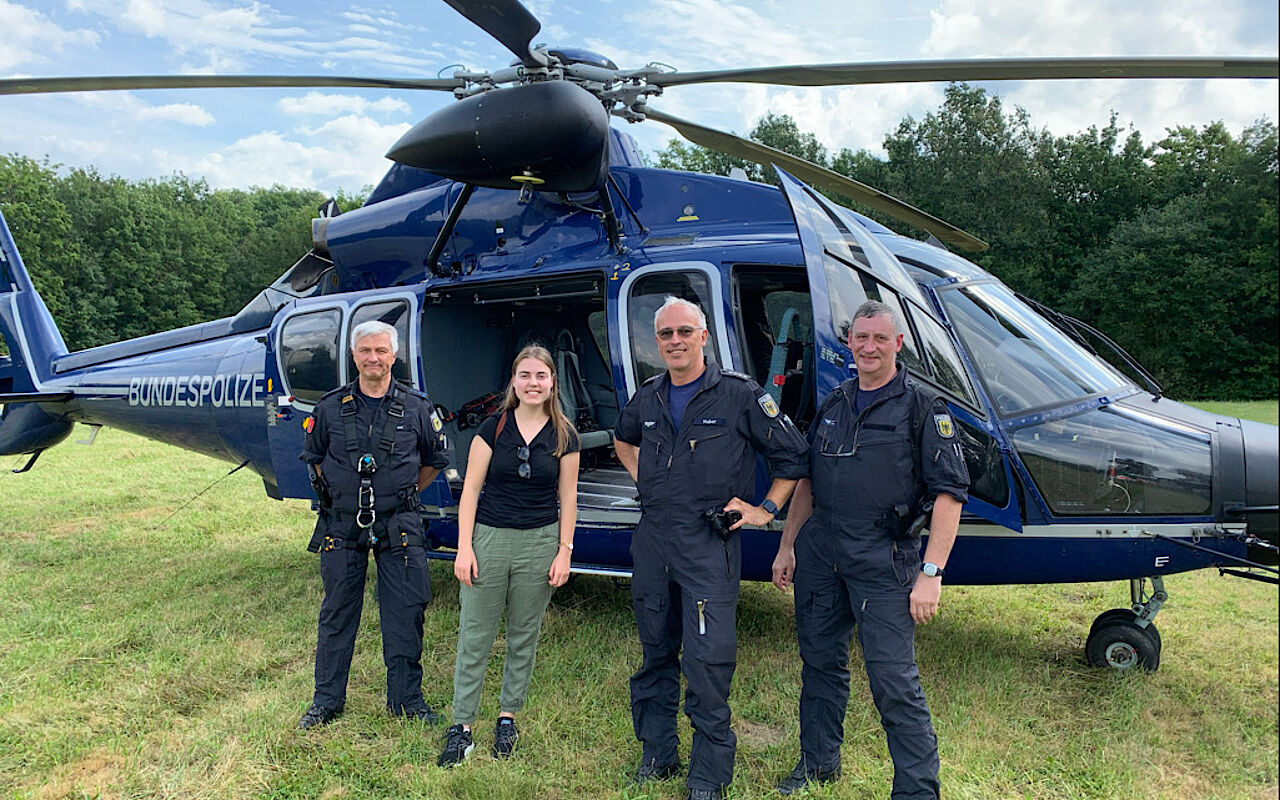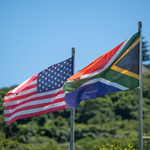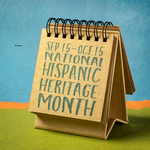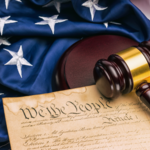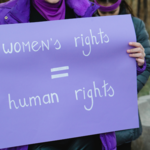by Margaret LaPré, Walsh School of Foreign Service, Georgetown University, Class of 2022
When recruitment for the first Rheinland-Pfalz Transatlantic Ambassador Internship began in winter 2021, it was impossible to imagine what the summer would have in store. After almost a year of pandemic conditions—including one semester of online learning for me and nine months of virtual programming for the Atlantic Academy—expecting the unexpected had become standard practice. Unlike in summer 2020, when the program was meant to originate but was cancelled due to COVID-19, remote work systems were well-developed. The internship’s three sponsoring organizations—the Atlantic Academy, the State Chancellery of Rheinland-Pfalz, and the US Forces Liaison Office in Mainz—were determined to get the program off the ground to avoid another year of postponement.
Getting Started
Since the US has a significant military presence in Rheinland-Pfalz, the State Chancellery works closely with the US Forces Liaison Office in Mainz and the Atlantic Academy in Kaiserslautern. This new internship position allows students to experience transatlantic cooperation firsthand by spending a month at each organization. As the authority on transatlantic relations in the area, the Atlantic Academy was a natural choice as a host organization and was able to secure funding for the internship.
The position instantly piqued my interest. Before coming to Georgetown, I studied International Studies and German at Boston College. I spent the year after my graduation working as an English Teaching Assistant at a German Gymnasium through the Fulbright program. My time in Germany solidified my interest in public diplomacy and intercultural exchange. The RPTAIP offered me a unique opportunity to see the transatlantic relationship through a security lens, engage in public diplomacy with a broader German audience, and become more familiar with the role of a state government in the German federal system.
The RPTAIP’s success in its inaugural year is a testament to the commitment and flexibility of the three sponsoring organizations. Because recruitment for the internship began in winter and I had accepted the position by the end of February, we had plenty of time to monitor COVID-19 developments and plan accordingly. Sarah Wagner, Education Manager at the Atlantic Academy, and I exchanged updates on the situations in our respective countries as the summer approached.
The Internship: The Atlantic Academy
Because all parties were well-adjusted to virtual modes of operation, I was able to begin my internship at the Atlantic Academy from Washington, DC on May 17th, 2021. With the entire Atlantic Academy staff working from home, my experience was no different than that of any other team member: I participated in weekly team meetings on ClickMeeting and was able to communicate with colleagues instantaneously via Slack. I also attended Atlantic Academy events online.
Because there was a regular intern on staff while I was at the Academy (click here for information about their internship position), I was able to focus my time on projects that incorporated my American perspective, including photographing sights on the East Coast for Atlantic Academy social media posts (see one of my posts here), compiling cultural materials on American youth for German high and middle school courses (see the list of school materials here), and suggesting American movies for future events. I also completed English-language projects such as translating the Atlantic Academy’s Annual Report 2020 and updating the Welcome to Rheinland-Pfalz “Guide to Living in Germany” for incoming US service members. Although it was disappointing not to be in Kaiserslautern for this portion of the internship, I was able to visit family and friends in the States that I had not seen for the duration of the pandemic during this time.
After five weeks with the Atlantic Academy, I transitioned to interning remotely for the State Chancellery’s Office for European and International Cooperation. On day one, I hit the ground running by conducting policy research in preparation for a meeting with officials from the US Consulate Frankfurt. Minister President Malu Dreyer and State Secretary Heike Raab’s packed schedules made for a fast-paced working environment, even from 4,000+ miles away. I worked primarily on drafting English-language meeting preparation materials and partner country correspondence.
The Internship: The State Chancellery and the US Forces Liaison Office
During my time at the State Chancellery, COVID-19 cases were low enough that travel restrictions were lifted for Americans entering Germany. With just two weeks’ notice, I booked flights and arranged accommodations to conduct the final month of my internship in Mainz. Coming from a low-risk area, I was permitted to enter Germany with proof of vaccination against COVID-19.
I completed my virtual internship with the State Chancellery before traveling to Germany on July 15th, 2021. I was welcomed in Mainz by US Forces Liaison Officer Steven Steininger. Mr. Steininger kindly picked me up at Frankfurt airport and helped me settle in before I began work with him the following Monday.
While in Mainz, I was able to shadow Mr. Steininger by attending COVID-19 restriction-compliant meetings at the US Army Garrison Kaiserslautern, US Consulate General Frankfurt, and US Army Europe and Africa Headquarters Wiesbaden. I was also able to accompany him on an official visit to Ahrweiler, a county heavily impacted by the severe floods in mid-July. One of my assignments was scheduling meetings with newly elected State Secretaries and Ministers, two of which I was also able to attend. After working and studying from home for more than one year, being able to participate in so many meetings was a privilege that I do not take for granted.
During my short time in Mainz, I was also able to meet my colleagues from the State Chancellery and Atlantic Academy. I worked in the State Chancellery for two days and stopped by the Atlantic Academy in conjunction with a visit to Ramstein Air Base.
Thank You!
Although this hybrid format was not how the internship was originally imagined, I am so thankful that it was able to take place. Thanks to everyone’s flexibility, I gained insight into the day-to-day operations of all three host organizations and was able to complete meaningful work from both sides of the Atlantic. The internship gave me an opportunity to use my German language abilities in a professional setting and exposed me to several career opportunities in transatlantic relations. The experience has shaped my thinking as I continue my master’s program and consider my post-graduate steps. I am taking a Transatlantic Security course focused on NATO this coming semester and will explore employment options at the Department of Defense as I approach graduation in spring 2022.
Thanks again to all those who made this internship possible and I look forward to promoting it to future candidates in the coming months.


